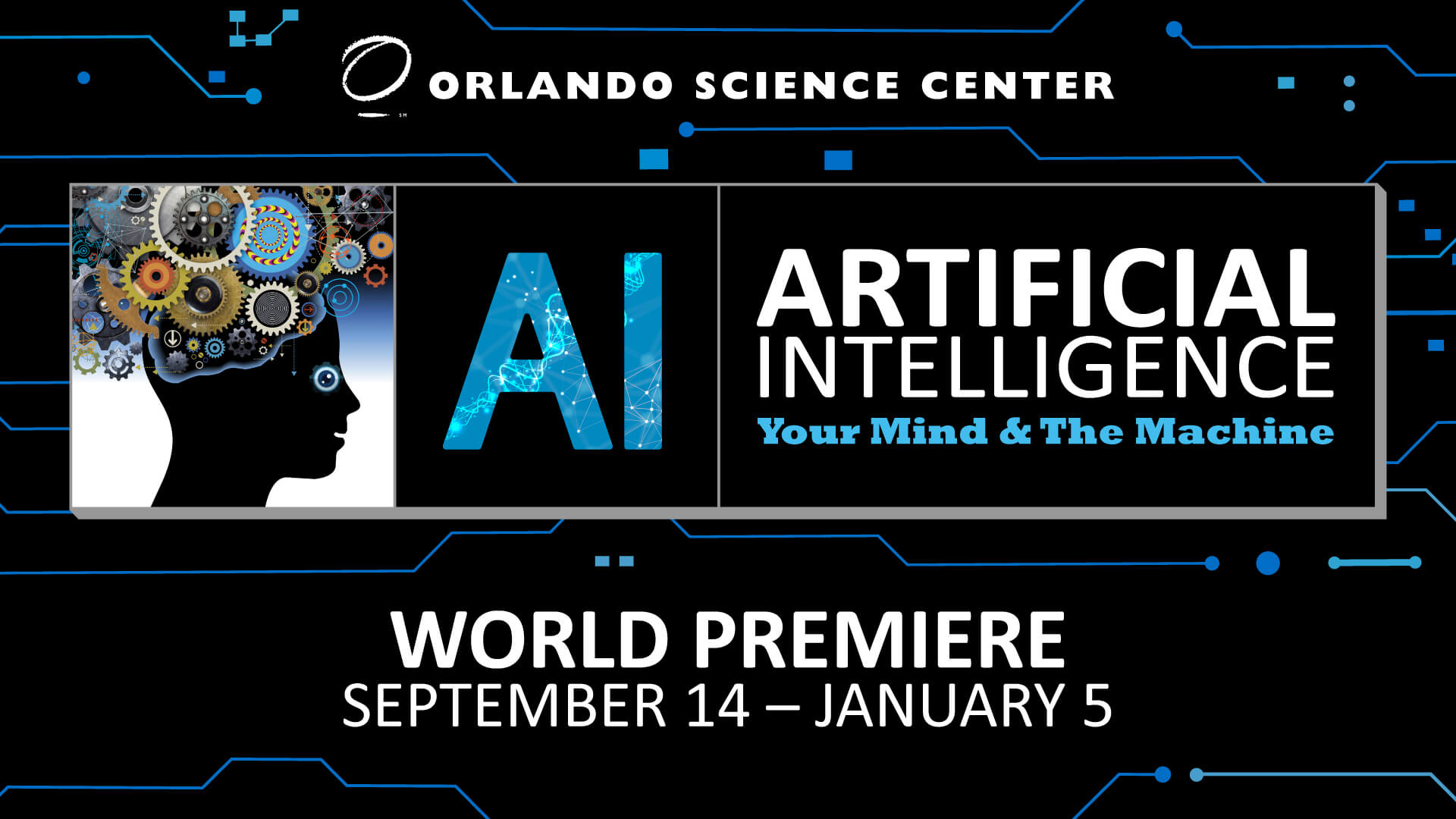Making its world premiere at Orlando Science Center on September 14, Artificial Intelligence: Your Mind & the Machine is the first traveling exhibit to focus on the practicality and potential of artificial intelligence. Children and adults alike will explore hands-on activities and displays exploring how computers learn and illuminating the differences between artificial intelligence and human intelligence.
The exhibit’s creator HP Newquist is one of the foremost authorities on the history and application of artificial intelligence. His career in AI spans four decades and his work has appeared in and been cited by such diverse publications as The New York Times, The Wall Street Journal, Newsweek, Variety, Billboard, Forbes, Popular Mechanics, Rolling Stone, Computerworld, and USA Today.
Before the exhibit joins us, Newquist shared why he believes understanding Artificial Intelligence is vital, what visitors can learn from the exhibit, what is the greatest myth about AI and more.

- Why did you design this exhibit?
Artificial Intelligence is the single most important technology being developed today . . . by far. Every large company and every government in the world is developing AI. Yet very few people know what AI is, or what it does. We want to provide people with a way to understand AI so that it’s real and relevant, not mysterious or frightening. At the same time, we want to show visitors that AI can change the world in ways that might be good and bad, and all of us should think about how that might happen. - Why do you think people are so fascinated with artificial intelligence?
AI has been part of our collective imagination for thousands of years, since the age of Greek myths. It all has to do with the idea of what might happen if science created something just like us, as smart as we are, and possibly even smarter. What happens then? - What can visitors expect from the exhibit?
The one thing we want visitors of every age, from 6 to 86, to discover is that AI—in all its forms—is based on mathematics. It’s not evil robots, it’s not computers that can think for themselves, it’s not brain-cells-in-a-machine. It’s advanced technology that uses very complex math, but at the end of the day, it’s still math. No matter how smart a machine or an AI application might seem, the reality is that it has no ability to think, no awareness, no consciousness. It is a brilliantly constructed mathematical program. Nothing more. - What's your favorite interactive in the exhibit?
I’m always astounded by watching an AI try to translate the Russian or Spanish version of Sleeping Beauty to English as you show it pages from the book. I can also stand for hours in front of the AI artist that paints what it sees in different classical painting styles. - What do you think people will be most surprised about?
My guess is that people will be amazed by what AI is capable of today. We all take Siri and Alexa for granted, but when an AI scans our faces and describes whether we’re happy or sad, that changes how we think of the technology—and what it might actually “know.” - What is the biggest myth this exhibit will help dismiss for visitors?
While the idea of a smart machine has been part of human storytelling for centuries, recently we've come to think that AI is—or will be—some kind of evil Terminator or a friendly C3PO robot. That’s the myth, because right now it’s neither. The reality is that AI can do amazing things, primarily because it can process much more information than humans can—and do it a million times faster. For example, an AI can scan thousands of satellite photographs and find new stars in a few minutes, but it would take human researchers months or even years to find those same stars. That’s incredibly impressive. But the same AI doesn’t know the difference between a guitar and a gorilla. That should put the myth vs. reality in perspective. - How do you think people will view AI differently after this experience?
My hope is that people will start thinking about AI as a real thing that is quickly becoming part of our homes, our schools, our workplaces, and our world. Like any technology, AI can be used to create chaos by the wrong people, and that’s a very real concern for the future. The more that our visitors understand what AI is right this moment, the more we’ll be able to use it in ways that will benefit our lives going forward.
AI: Your Mind & the Machine premieres at Orlando Science Center on Saturday, September 14. The exhibit opens to the public at 12:00 p.m. Members of Orlando Science Center can enjoy the Member-only preview of the exhibit that morning. The exhibit will be on display until January 5.
